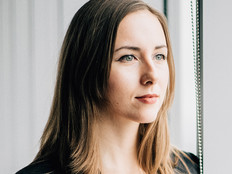1776’s Global Search for Startup Stars Kicks Off in DC
It’s not quite American Idol, but the search for startup superstars can be just as high-stakes and nerve-racking.
At 1776’s headquarters in Washington, D.C., founders are preparing for their one-minute pitches, which they’ll make to a room of fellow entrepreneurs, venture capitalists and reporters as part of the startup incubator’s Challenge Cup kickoff.
To make things worse, there’s a gong that clangs loudly if a presenter exceeds the time limit. Thankfully, the organizers at 1776 didn’t go as far as to hire Sandman from Showtime at the Apollo to shoo founders off the stage.
While making their one-minute pitches, some of the founders flub their lines, stumble over statistics and get lost in marketing jargon. But others succeed in cutting through the noise and making a compelling case.
To make it to competition, the founders have to impress a judging panel that’s made up of influencers in the health, education, energy and “smart city” spaces: Al Martinez-Fonts Jr. of the U.S. Chamber of Commerce; Dan Kasun of Microsoft; 1776 cofounder Evan Burfield; Brian Jacobs of Children's National Medical Center; Ilana Preuss of Smart Growth America; Becky Lavish and John Goucher of Pearson; and Emeka Moneme of the Federal City Council.
The winners for the Washington, D.C., region were eduCanon, Ethical Electric, Dorsata and RideScout. Each company will return to 1776’s headquarters in May next year to compete against other regional finalists to determine the ultimate winner. Chicago is the next city in the Challenge Cup schedule.
Why Startups Matter to the Nation’s Capital
The founders of 1776 have the full-throated support of the district’s mayor, Vincent Gray. He attended the incubator’s grand opening and has made several appearances at various events since then.
He was on hand at the Challenge Cup to proudly beat the drum for the district’s continued investment in startups and technology.
“You all are very much a part of redefining the future of this city,” Mayor Gray said. “We have 632,000 people now who live in this city, and we know it's going to continue to grow because of the technology catalyst that's being created in the city.”
It’s no secret that startups can help a city thrive and blossom. Just look at the effect that startups like Dropbox and Twitter have had on various cities and regions. Mayor Gray is hoping that startups can help diversify the district’s economy so that the city is less reliant on the federal government for funding.
He also took the opportunity to call the recent shutdown of the federal government “one of the dumbest things ever” and a perfect example of why the city needs to become as independent as it can be from Congress.
Disrupting the Undisruptable
Highly regulated industries in education, health, energy and government have deep hooks in the nation’s capital. These sectors have also been far more difficult to disrupt than the consumer side of technology.
But innovating in these disruption-proof sectors is part of 1776’s mission, and it’s why the Challenge Cup is divided into four categories: education, healthcare, energy and smart cities.
In the education category, many great ideas die because of a lack of funding or bureaucracy. EduCanon, the winner in this category for the D.C. region, is taking on the flipped classroom phenomenon and offering a solution that allows teachers to turn YouTube videos into interactive learning opportunities through timed questions and tools.
Edbacker, the Kickstarter for K–12, was a finalist along with eduCanon. The company strives to reinvent fundraising and move beyond getting kids to push candy bars and wrapping paper for schools. It also claims that 90 percent of the funds raised for a project go to the schools, which far exceeds the standard percentage schools currently get from fundraisers.
In health, Dorsata, which promises to make algorithm-based decision-making easier for doctors, won out. But other interesting contenders included Rijuven, which produces CardioSleeve, a smart stethoscope, and 1EQ, a genomics-based approach to preventive healthcare.
In energy, Ethical Electric, which won the category, aims to offer eco-conscious consumers an easy way to purchase energy from completely clean and green energy sources. The company claims to have booked an impressive $1.8 million in revenue so far. Sunnovations, the other finalist in the category, specializes in hot-water monitoring — a niche within the home energy optimization category. It’s an underserved market, and the company claims it’s half the cost of its competitor, with half the install time.
In smart cities, RideScout reigned supreme. The company, which is like a real-time version of Kayak for transportation, allows users to look at public and private transportation options and book within the app. Transit Labs, the other finalist in the category, aspires to improve methods in collecting, aggregating and analyzing transportation data. They’ve already signed on transportation systems in the state of Georgia.
NeXt didn’t make it to the finals, but their windshield solution for in-car communication is intriguing. The company is still in the very early stages, but you can see a prototype of the technology in this video from Engadget.
The D.C. round of the Challenge Cup has certainly set a good standard for the rest of the competition. We’ll have to wait and see how the district’s contenders stack up with the rest of the world’s in May.







